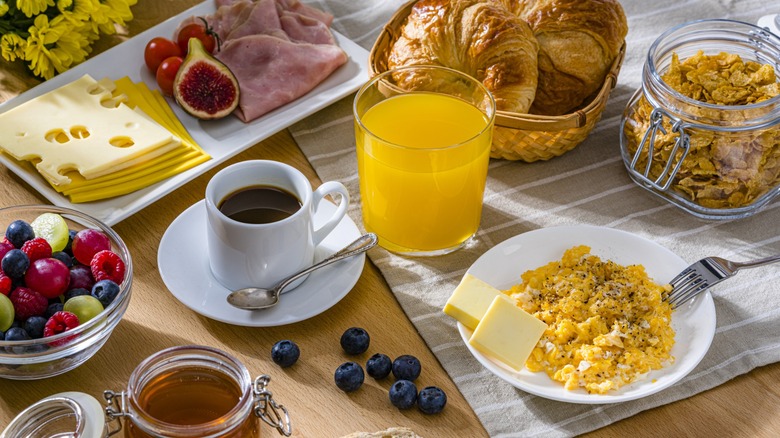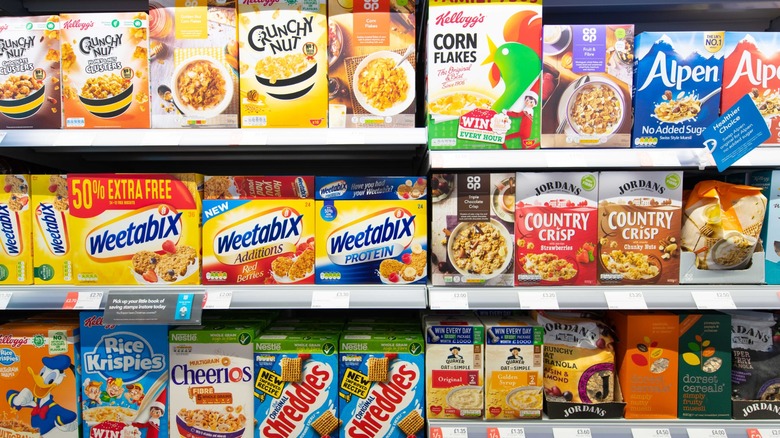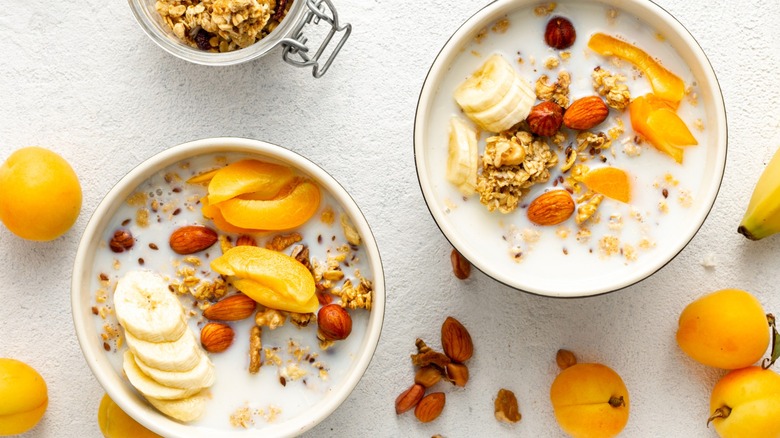Breakfast Isn't Actually The Most Important Meal Of The Day
"Breakfast is the most important meal of the day." There's no doubt you've heard this countless times in your life. You were most likely told this exact phrase as a child, and it was ingrained so much in your brain that, now, you don't even question it. After all, it's just one of those things that seems true — a good, hearty breakfast can help prepare you for the rest of your day. Breakfast not only gives you the chance to start your day by replenishing your body with vital nutrients and vitamins, but it's also a playground to try out fun recipes (like this breakfast burrito).
With these things in mind, it may seem that breakfast really is the most important meal. But what if you were told this statement was actually the result of corporate schemes? There's more to the invention of this slogan that shows how marketing essentially made breakfast as important as it's viewed today.
Breakfast as we know it was made to sell product
The late 19th and early 20th century saw breakfast become most associated with the idea of filling your body with everything it needs to run smoothly. According to The Guardian, this was pushed by blossoming cereal magnates like John Harvey Kellogg (yes, that Kellogg), a super-strict religious moralist who fervently believed that eating the "correct" foods could help to ward off temptation and impurity. Conveniently enough, Kellogg's own cornflake cereal served as the perfect food for this purpose, as it was light, pretty bland, and overall inoffensive.
Once the discovery of vitamins entered the mix, cereal advertisers continued to use moralizing marketing ploys to convince working-class mothers to buy nutrient-rich cereals for their children. This only cemented breakfast's place as the most important meal in the cultural eye, as it was viewed as a quick and easy source of essential vitamins. Of course, breakfast isn't the only meal where kids are provided nutrients — just look at why schools serve lunch with milk rather than water — but the marketing of cereal brands leaned into the guilt/shame angle in getting busy mothers to supply a healthy breakfast for their children.
How accurate are these claims?
There isn't exactly one "most important" meal of the day, getting your fill of nutrients is important to keep your body operating properly no matter what meal it is. That said, there's a prevailing belief that eating large portions later in the day is far less beneficial than eating earlier in the day, as earlier meals can benefit from your daily waking metabolism compared to late meals.
But before you start whipping up that shakshuka you've been looking at, it's important to know that, ultimately, you've got to listen to yourself to know if breakfast is really that important. In many countries, especially in parts of Europe along the Mediterranean coast, breakfast is a very light affair, with lunch being the largest and "most important" meal. And based on the differing dinner times around the world, that rule of "no late eating" isn't exactly ironclad on a cultural level. When it comes down to it, though the morning is a great opportunity to start your day with a nutritious and satisfying breakfast, it's not inherently the most important meal of the day. That dubious distinction goes to the meal (or meals) that best work with your schedule, metabolism, and taste.


